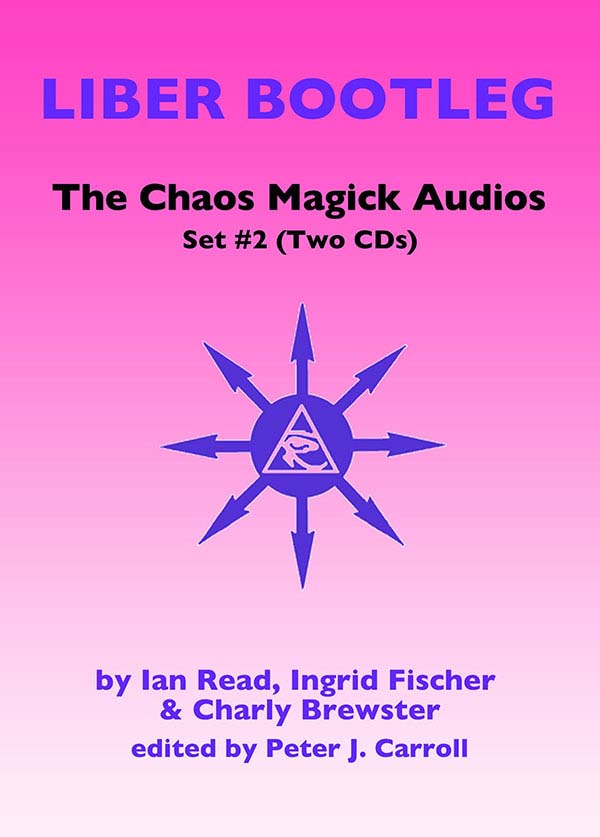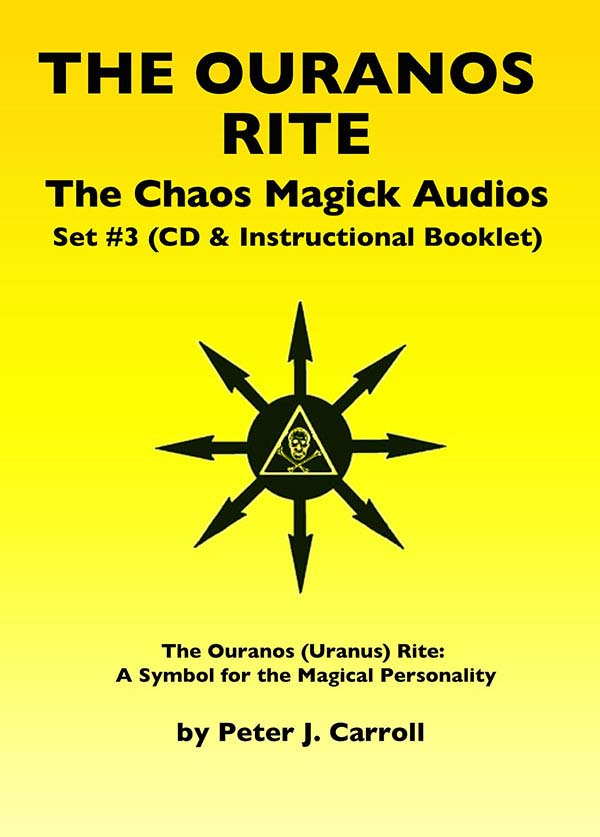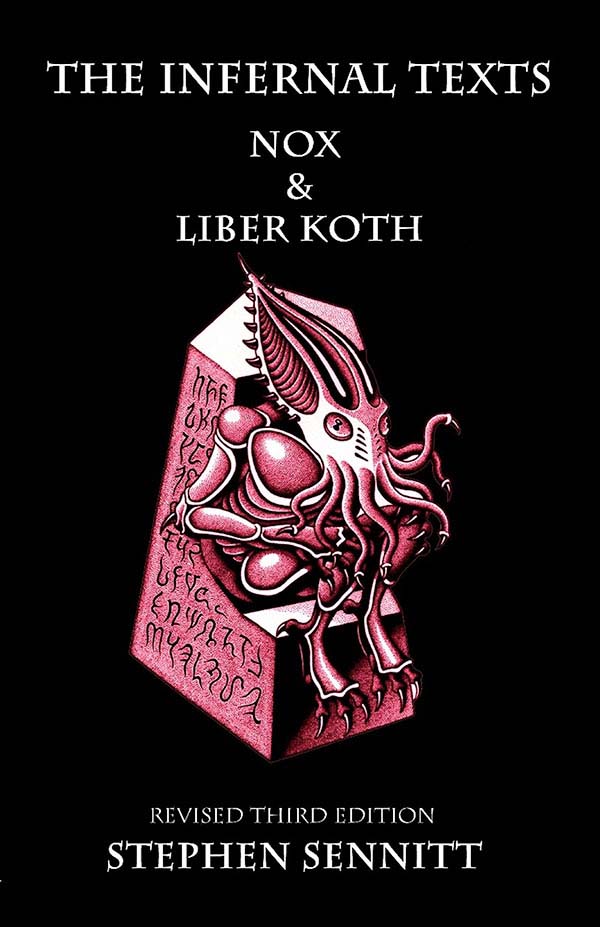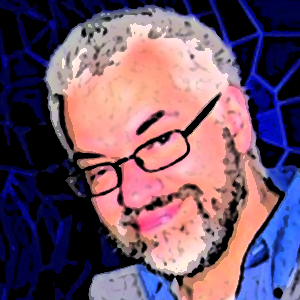Introduction to the "Sexualities" Section
My early experiences in occult groups (and reading occult books) with regards to sexuality were not, on the whole, without issues. The prevailing attitude I encountered in the UK occult scene of the 1980s was that if you weren't straight, you couldn't be a witch or magician. This attitude ranged across the entire gamut of occult genres—Witchcraft, Ceremonial Magic, Tantra. Even the Neo-Tantra/Sacred Sex movement, which began to become popular in the early 1980s shared this view. Nik Douglas and Penny Slinger's best-selling Sexual Secrets (first published in 1979) held the view that "homosexual freedom" led to the decline of empires and that gay men should use yoga techniques to suppress their desires and thus avoid "karmic consequences." Nowadays, it is easy to come away with the impression that the world of Paganism and the Occult has always been accepting of non-normative sexualities. If people aren't accepting, then it is often laid down to individual aberrations and not embedded culture. It's easy to forget that in the 1980s and 1990s (in the UK at least) it was not unusual to find people mouthing statements that we would now recognise as homophobic, and largely not being challenged or called out for doing so.
For me, and most of the queer-identifying friends of my generation, the reality of the situation is more complex, and it has been my experience that the acceptance of non-straight Pagans and Magicians in the mainstream scene is the result of a long battle which is still, to some extent, going on. In part, this battle has been one of challenging assertions such Gareth Knight's "homosexuality, like drugs, is a technique of black magic" or occult theories that ascribe non-normative sexualities to "blocked chakras," an "imbalance of yin or yang energy," "reversed kundalini." We have also had to contend with explanations of polarity which draw on electro-magnetism or just good old "plugs and sockets," and the bizarre view that homosexuals are simply "not human," but are elemental or demonic entities inhabiting human bodies for dubious purposes—all ideas I have found in a wide variety of texts still in circulation.
Reading (and hearing) this sort of thing in the early 1980s, as a young man struggling with my own identity as a gay or bisexual man (I wasn't sure, and did think of myself as gay for some years), was confusing, to say the least. I went through stages of confusion, depression, and finally came around to being angry about it.
Getting angry largely took the form of writing, lecturing, and having long discussions with other non-straight Occultists and Pagans—there weren't that many, initially. I also started being more ‘out' at pagan and occult gatherings—on one notable occasion, swanning around a field full of pagans in Leicestershire in leather trousers, a dog collar, and a feather boa.
By the late 1980s I'd become active in PaganLink Network (see the section on Paganisms) and it was through PaganLink I became acquainted with Gordon "The Toad" McLellan. Gordon started a Network called HOBLink which was a network with the aim of getting Gay, Bisexual, Lesbian and Trans pagans in touch with each other. The initial focus was on correspondence, although we did have a couple of enjoyable meetings. When I moved to London in 1992, I helped start up a London HOBLink group which ran for a while, titled "Queerwolf: A Radical Sexuality Network". We placed an advert in Gay Times to try to draw in some interest, but many of the respondents clearly associated Paganism with orgies on Hampstead Heath, which wasn't really the kind of meeting we were looking for at the time! I produced a newsletter entitled Queerwolf, although there was only one issue.
Throughout the 1990s I met and corresponded with a wide variety of non-straight magical practitioners from various traditions and approaches. Although I occasionally heard stories about people who'd had to "hide" their sexuality in order to be accepted in occult groups, things were slowly changing. Most of the people I knew through the Illuminates of Thanateros (IOT) or the Temple of Psychic Youth (TOPY) had no problems with queer magical practitioners, but a great deal of homophobia dressed up as occult lore still circulated in occult texts from other traditions, and of course, there was always occult scene gossip to contend with, which sometimes became public. By the late nineties some LBGT/Queer occult practitioners were creating their own autonomous spaces.
Queer Pagan Camp (QPC) is a case in point. Established in 1998, QPC ran for thirteen years annually (and after a brief hiatus, is running again) as a Do It Yourself Queer Space set up and run by Queer Pagan and Magical Practitioners—something quite different to a largely hetero-normative Pagan event that might (with the best will in the world) struggle to be "inclusive" of non-straight participants and perspectives. Part of the impetus behind the setting up of QPC was to offer a safe space for queer Pagans and Magicians, but also to create something different.
What does Queer mean in this context? It strikes me that there are two related but divergent ways in which the phrase "Queer Pagan" can be thought through. Firstly, as a noun, "Queer Pagan" can be read as an umbrella term, encompassing a multitude of identity-positions where perhaps the only commonality is varying degrees of commitment to refusing/resisting the hetero-normative gender binary. However, it's the second usage of "Queer Pagan" which I want to focus on for now, where "queer" is a verb, signifying a radical process of disruption—where the focus shifts from Queer Pagan as an identity-position towards Queering-Paganism as process.
What does it mean to "queer" something? Queering can be thought of a process of disrupting, disturbing and questioning the normal—that which is "taken for granted." Queer sidles up to identities, ideologies—any category that has been taken to be timeless, solid, and foundational and exposes gaps, fissures, resistances, instabilities, different possibilities, and surprises. Part of this commitment to challenge, to uncover the hidden, to look backstage and discover how productions are produced is the commitment to keep "queer" fuzzy and indeterminate—a recognition of the importance of not slipping back into an "us-them" binary which privileges a heroic "transgressive" queer subject against those still bound up in normative relations.
Someone asked me a couple of years back if Queer Paganism could be thought of as a "tradition". It is an interesting question, which for me highlights how Pagans tend to conceptualise different categories of praxis into "traditions." It also begs a questioning of how the very concept of "Traditions" is used in Pagan discourse. "Tradition" is sometimes used to denote a commonality of praxis—which is to say that it often implies common practices, ideologies, political alliances—and often there is an implication that this praxis is historically located—a kind of sense that what we do now was done by our ancestors, sort of thing. Tradition can be thought of (simplifying hugely) as an appeal to unity to varying degrees—and can act as a boundary in making distinctions between one approach to praxis and another. But for Queer Pagan(ism) such appeals to unity can only be, I think, of a temporary nature. One thing I see as central to Queer Paganism is a commitment to diversity and difference—which involves allowing a place for dissent—and the understanding that dissent is itself productive, rather than a failure. Equally, making a case for a historical Queer Paganism is also tricky. Although we can talk (at length!) about celebrating queer ancestors, reading queerness into and out of histories, of uncovering the politics of dissent hidden behind monolithic accounts of the past, I don't think that's quite the same as rooting a Queer Pagan praxis in the deep, undifferentiated past. I think of Queer Paganism as something new—Queer Theory and Queer Activism both emerged out of the 1990s, and the kind of Queer Paganism being enacted at QPC has direct connections to Activist groups such as Queeruption.
If one can speak of "Queer Pagan Tradition" at all, then it is as something relational to particular alliances and networks produced within, and temporary to heterotopic spaces such as Queer Pagan Camp. Perhaps a sense of shared tradition emerges when Queer Pagans come together to laugh, celebrate, dance and argue, but outside of such spaces it recedes, dissolving like morning dew. Rather than looking at tradition as a boundary which encloses particular practices (such as theologies, rituals, etc.), what seems to me to be of more concern within a Queer Pagan space is a commitment to an ethic of mutual care and reciprocity—an invitation to play with boundaries and categories, to celebrate difference. It is this ethical openness—primarily towards sexuality and gender identification, but also other forms of difference—which I see as central to understanding Queer Pagan approaches. Queer need not be an either/or choice made in opposition to other identities, but (depending on context/situation) possibly a "both/and" choice, or even a "neither/ nor" choice. Opening to the possibilities of fluidity entails an acceptance of multiple orientations and positions that shift according to particular contexts and situations. At QPC, being "queer" is a matter of self-identification. If you think of yourself as queer, regardless of how you frame or express your desires (or not), if you can empathise with the ideals of the camp, you're "queer." It's not just Wicca with added glitter or Shamanism in High Heels.
The essays I've chosen for the Sexualities Section date from 1988 to 2019, and I feel, expose a wide range of influences and perspectives.









